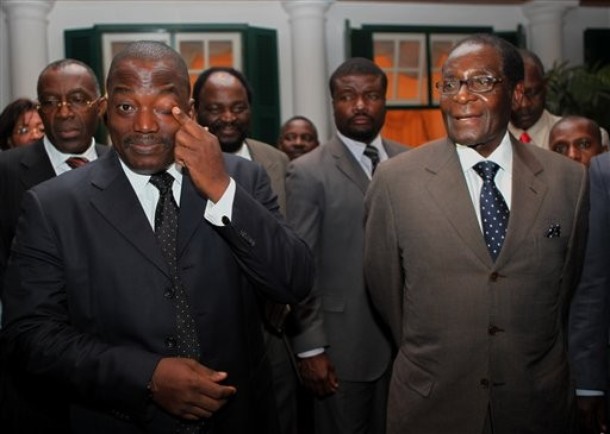
-TOP government officials say Democratic Republic of Congo (DRC) President Joseph Kabila wants Zimbabwe to assist him circumvent the constitutional requirement that he steps down after serving two terms as president, amid growing unrest caused by his bid to stay in power.
Elias Mambo
Kabila, who visited Zimbabwe last week, took over power in 2001 when his father, Laurent Kabila, was assassinated and went on to win disputed elections in 2006 and 2011.
However, the DRC constitution (Article 220) clearly stipulates that the president cannot seek a third term after his second presidential mandate.
“The republican form of the State, the principle of universal suffrage, the representative form of government, the number and length of the terms of office of the President of the Republic, the independence of the Judicial Power, the pluralism of political parties and trade unions may not form the object of a constitutional amendment,” reads article 220 of the DRC constitution.
Despite this, Kabila has attempted to extend his stay in power.
One such attempt was in January 2015 when he suggested that the presidential and parliamentary elections should be held after compilation of a new electoral roll. His proposal provoked violent demonstrations that led to over 40 deaths after protesters violently clashed with the police.
Last week Kabila and President Robert Mugabe met at at State House where they held closed door meetings.
Sources said Kabila, whose neighbours in Burundi and Rwanda recently embraced third terms as many other African leaders, is seeking Zimbabwe’s assistance in prolonging his stay in power by manipulating the constitution as tensions continue to flare in his central African country.
“Kabila is under pressure as his term of office comes to an end next December, with tensions and violence escalating every day,” said a top government official.
“He told Mugabe how he is trying to implement major electoral reforms which include the delimitation of the country’s 11 provinces. That process has already resulted in the creation of 26 provinces. Kabila also wants a new voter’s roll, a move which opposition political parties claiming is meant to buy time in order to delay the December elections.”
Besides the request for assistance in implementing the electoral reforms, the source said Kabila also enjoys the services of Zimbabwean’s Central Intelligence Office which helps provide him with security.
“Currently Kabila’s office is manned by Zimbabwe’s intelligence personnel. They were there soon after the death of Kabila’s father. Some came back, but since 2009 Zimbabwe redeployed the security details to provide protection and intelligence to Kabila.”
Addressing journalists after meeting Kabila, Mugabe said: “My brother here paid us a visit … He gave an account of how they are organising themselves geologically and politically in order to unite people and they feel they are getting there. They are also preparing for local elections, which will lead to national ones.”
University of Zimbabwe political science lecturer Eldred Masunungure said the secrecy surrounding the talks between Kabila and Mugabe is worrisome.
“We were told that he has come as the deputy African Union chairperson but the secretive nature of the talks raises eyebrows,” Masunungure said. “If it was AU business then there was no need to hold closed door meetings. Mugabe can be a godfather to all who want to manipulate systems in order to hold on to power because of his experience,” he said.
“Kabila is facing resistance in his home country so we hope his coming is not to solicit ideas on how to manoeuvre his way into a fourth term.”
This is, however, not the first time that DRC has sought help from Zimbabwe.
In 1998, Zimbabwe sent thousands of troops to the DRC to help defend Kabila’s father, as his regime was about to fall to rebels supported by Rwanda and Uganda.

